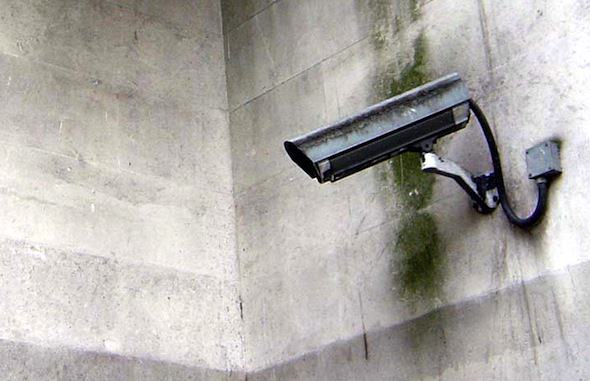Spying a Difference Among Democrats in ‘Silicon Beach’ Congressional Race
To evaluate contenders for Rep Henry Waxman's seat, I looked at an issue that is central to American life today: domestic spying by the federal government Henry Waxman's seat, I took an issue central to American life today: domestic spying by the federal government.
Behind the increasing heat of California’s Gold Coast-Silicon Beach congressional election is a struggle for the future of the Democratic Party and the progressive movement.
Although there are 17 candidates in the race to replace the great liberal Henry Waxman, who is retiring after almost 40 years, the contest in the predominantly Democratic district seems to have come down to three of the best-known Democrats. They are Matt Miller, whose hosting duties on the Santa Monica NPR station show “Left, Right & Center” has made him a public personality in the district; Ted Lieu, a state senator whose legislative district includes 80 percent of the 33rd Congressional District; and Wendy Greuel, the former Los Angeles city controller who lost to Eric Garcetti in last year’s election for mayor.
Another candidate with a chance to win — although a small one in the face of so many Democratic voters — is Republican Deputy Dist. Atty. Elan Carr. And then there’s the independent, Marianne Williamson, who is the farthest left in the field and who is running against the political establishment.
Nobody knows how this will come out in Tuesday’s primary election and the expected November runoff. One possibility is that with so many Democrats competing, Republican Carr will sneak into the runoff. Another is that the charismatic Williamson catches a wave of voter discontent and makes the November final. Or it could come down to a fall contest between two of the three traditional Democrats, Greuel, Miller and Lieu.
There’s much at stake in the election, not the least of which is the wealth found in the 33rd Congressional District. It reaches from the prosperous San Fernando Valley suburbs through the mansion-heavy portions of the Santa Monica Mountains to the famously rich Malibu beach area and south along the coast through Santa Monica and Venice.
This coastal area is home to so many big tech companies and startups it’s known as Silicon Beach. The district also includes the middle-class suburbs south of Los Angeles.
The election is important to the national Democratic Party as it heads toward the 2016 presidential elections. Which way will the rich point their wealth if Hillary Clinton seeks the party’s presidential nomination, and if a challenge from the left — possibly by Sen. Elizabeth Warren — emerges against her?
None of the three Democrats are flaming liberals. That position goes to Williamson, a favorite on the inspirational speaking circuit and a powerful critic of political incumbents. Although she never mentions Miller, Lieu or Greuel by name, she is unsparing in her criticism of politicians like them.
Democrats in the district, like those around the country, will try to find differences among traditional Democrats such as Miller, Lieu and Greuel who broadly believe in the same things. To try to figure out this puzzle, I looked at an issue that is central to American life today, the federal government’s domestic spying, revealed so powerfully by Edward Snowden. All three are critical of Snowden, but there are differences between Miller and Lieu on spying.
Miller is the candidate of the Clinton wing, the party’s Washington-oriented center. He worked in the Clinton White House’s Office of Management and Budget under the Democratic economic power Alice Rivlin, drafting policy papers. That, Miller told me, gives him “a national reputation on policy that leaves me ahead of the others.”
Miller has made his views on national security clear in his Washington Post columns, books and other writings, and from his position as the center on “Left, Right & Center.” (Truthdig Editor-in-Chief Robert Scheer occupies the left.)
It was on that show a year ago that Miller enunciated his philosophy on the national security apparatus and domestic spying.
He said: “I understand the outrage over this, but I also wonder if it’s a function of the fact that, by and large, thanks to great work by our national security apparatus and defense, etc., we haven’t had major attacks since 9/11. If we had … I wonder if the whole conversation would be different.”
And in a Washington Post column attacking Snowden, he wrote, “What Snowden exposed was not some rogue government-inside-the-government conspiracy. It’s a program that’s legal, reviewed by Congress and subject to court oversight.”
That’s a contrast to the strong pro-privacy stand taken by Lieu. Although he is critical of Snowden, an aide said, Lieu is the author of state legislation that would require the federal government to get a judicial warrant if it wants cooperation from state law enforcement to search Californians’ cellphones and computer records. He also introduced a resolution condemning the National Security Agency searches as unconstitutional.
“Let’s not forget that the last time our federal government engaged in a mass violation of constitutional rights for ‘security reasons,’ over a hundred thousand Americans were forced into internment camps,” he wrote on the Down With Tyranny website, referring to the imprisonment of Japanese-Americans at the beginning of World War II. In another comment he noted, “All 317 million Americans cannot reasonably be considered to be suspicious simply for making or receiving phone calls. The NSA’s blanket seizure of the telephone records of all Americans is therefore an ‘unreasonable seizure’ by any definition of the term under the Fourth Amendment.”Unlike Miller and Lieu, Greuel has not spoken much about the national security issue. Starting out as an assistant in the office of Mayor Tom Bradley, she worked in the federal Department of Housing and Urban Development and served on the Los Angeles city council before becoming controller. She has concentrated on the day-to-day problems of transportation and other aspects of urban and suburban life and has pledged to get more federal help for Southern California in these areas.
I called her to find out where she stood on national security. “Striking a balance between protecting security and protecting the right of privacy of all Americans,” she replied. Specifically, she said she supported House-passed legislation by California Democratic Rep. Adam Schiff that limits government surveillance programs but still permits the NSA and other government agencies to collect and store large amounts of data about people. She said the measure was a move “in the right direction.” An aide said she was also critical of Snowden.
Greuel clearly sees Lieu as her main opponent in Tuesday’s primary and her likely foe in the November runoff. This week, she sent out an attack on him that is typical of the misleading mailers that constitute the main form of communication in California congressional elections that are as close as this one.
She said Lieu dropped a workers’ compensation bill at the request of a now-disgraced colleague accused of accepting illegal payments for blocking the measure. “Sen. Ted Lieu caved in to corrupt politicians,” the mailer screamed in big type. “It’s a lie,” Lieu campaign manager Bill Carrick replied. Carrick said Lieu talked to the FBI as a cooperating witness and, rather than block the legislation, he incorporated it in an omnibus workers’ compensation measure. Greuel told me the claims made in the mailer were well documented.
It was a disillusioning contrast to the warm working mom image Greuel has been cultivating in other advertising. “I’m very disappointed,” said longtime Greuel admirer Robert Stern who, as president of the Center for Governmental Studies, gained a reputation as an expert in campaign ethics and finance. “It was a distortion, taking things out of context.”
Close elections in California always seem to end on this type of sour note, and I have covered enough of them to avoid getting especially inflamed by such tactics.
Instead I make up my mind on what the candidates say on the issues of the day. And after watching Edward Snowden’s thoughtful interview with Brian Williams on NBC on Wednesday, I was again reminded that domestic spying is the most important issue in this race.
I still haven’t found another Henry Waxman among the candidates, someone who combines tactical political skill with a liberal determination to have a government that helps rather than hurts people. But Ted Lieu, by standing up early for privacy and against the NSA, has shown the kind of vision and guts that Waxman has demonstrated in his almost 40 years in the House.
Your support matters…Independent journalism is under threat and overshadowed by heavily funded mainstream media.
You can help level the playing field. Become a member.
Your tax-deductible contribution keeps us digging beneath the headlines to give you thought-provoking, investigative reporting and analysis that unearths what's really happening- without compromise.
Give today to support our courageous, independent journalists.






You need to be a supporter to comment.
There are currently no responses to this article.
Be the first to respond.